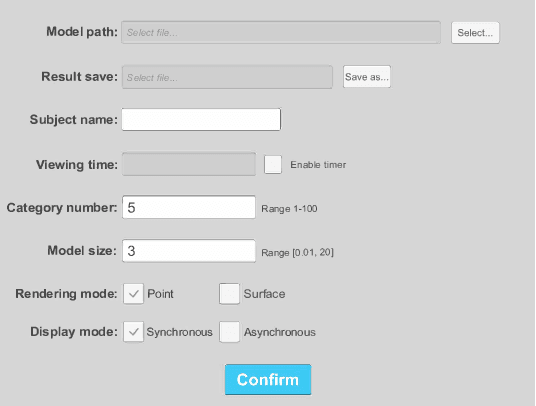Screen-based 3D Subjective Experiment Software
Paper and Code
Aug 08, 2023



Recently, widespread 3D graphics (e.g., point clouds and meshes) have drawn considerable efforts from academia and industry to assess their perceptual quality by conducting subjective experiments. However, lacking a handy software for 3D subjective experiments complicates the construction of 3D graphics quality assessment datasets, thus hindering the prosperity of relevant fields. In this paper, we develop a powerful platform with which users can flexibly design their 3D subjective methodologies and build high-quality datasets, easing a broad spectrum of 3D graphics subjective quality study. To accurately illustrate the perceptual quality differences of 3D stimuli, our software can simultaneously render the source stimulus and impaired stimulus and allows both stimuli to respond synchronously to viewer interactions. Compared with amateur 3D visualization tool-based or image/video rendering-based schemes, our approach embodies typical 3D applications while minimizing cognitive overload during subjective experiments. We organized a subjective experiment involving 40 participants to verify the validity of the proposed software. Experimental analyses demonstrate that subjective tests on our software can produce reasonable subjective quality scores of 3D models. All resources in this paper can be found at https://openi.pcl.ac.cn/OpenDatasets/3DQA.
 Add to Chrome
Add to Chrome Add to Firefox
Add to Firefox Add to Edge
Add to Edge